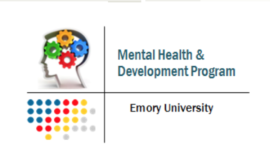About
The Emory Mental Health & Development Program conducts clinical research studies on individuals at risk for mental illness. Our focus is on adolescents and young adults who are concerned with a recent change in their thoughts, feelings, functioning and behavior.
What is the Prodrome?
“The “prodrome” is the technical term used by mental health professionals to describe groups of symptoms that may precede the onset of a physical or mental illness. Better understanding prodromal symptoms will help us in planning preventive interventions and may also shed light on the underlying neural mechanisms that contribute to illness. In the Emory Mental Health and Development group, we are focused on the prodromal signs of serious mental illness, such as psychosis and major depressive disorders. Our ultimate goals are identification of risk signs and preventive intervention.
Serious mental illnesses, including psychosis and major mood disorders, impact about 3-4% of the population, and typically arise between the ages of 15 and 30. The prodromal phase precedes the onset of clinical symptoms meeting full criteria for these illnesses, and is characterized by a decline in functioning and a change in mood, thoughts and behaviors. More of these symptoms are listed under the “prodromal symptoms” tab above.
Showing signs of being “at clinical risk” does not mean that an individual will develop a serious mental illness, it just indicates a higher risk. Fortunately, most who manifest clinical risk signs do not go on to develop a serious mental illness. Instead, as they progress through young adulthood the clinical risk signs decline. The purpose of our research is to investigate the nature and progression of clinical risk signs so we can ultimately help individuals struggling with these symptoms.
